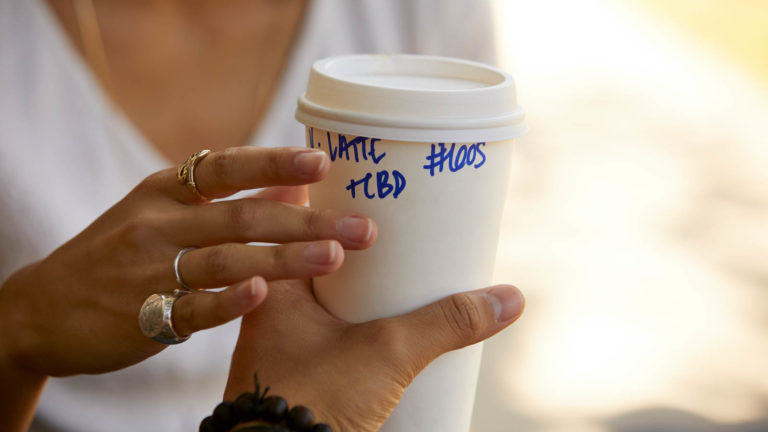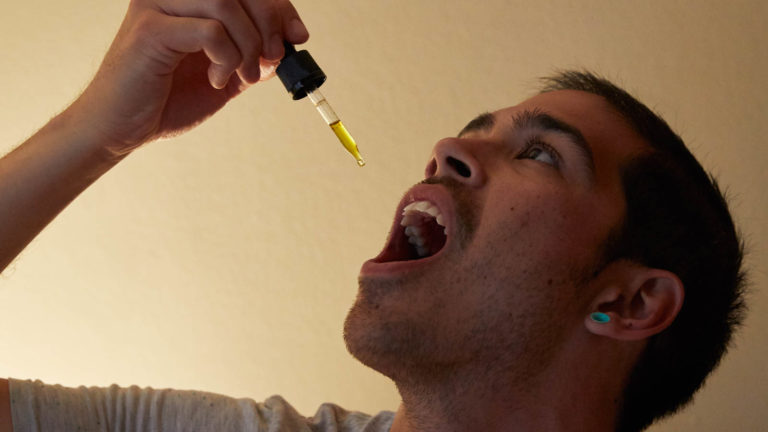Currently, there is a lot of confusion surrounding CBD laws in Missouri. On one hand, state lawmakers passed a bill in June 2018 to remove industrial hemp from the state's list of controlled substances; that action seemed to indicate that CBD derived from industrial hemp plants is legal. On the other hand, law enforcement agencies in Missouri have raided shops selling CBD as recently as November 2018, leaving many in the state uncertain of CBD's legal status. Despite this confusion, Missouri continues to see an explosion in the number of brick and mortar shops selling CBD oil and other CBD products.
What is CBD?
The cannabis plant naturally produces more than 400 chemical compounds, at least 60 of which are cannabinoid compounds. Cannabinoids interact with the human body's endocannabinoid system (ECS) to produce a broad range of physical and psychoactive effects.
Tetrahydrocannabinol (THC) and cannabidiol (CBD) are the cannabis plant's two most prevalent cannabinoids. Generally speaking, THC produces marijuana's intoxicating effects, while CBD is a non-intoxicating compound and reportedly provides numerous therapeutic and medicinal qualities.
To date, researchers have identified several potential health benefits linked to CBD, including anti-inflammatory, analgesic, anti-anxiety, and anti-seizure properties. Further, the chemical has shown promise in treating numerous health conditions, such as epilepsy and other seizure disorders; mood disorders such as depression, anxiety, and psychosis; as well as chronic pain.
As research remains ongoing, there is a growing body of evidence pointing to CBD's potential efficacy in medical applications and as a health supplement.
Why is CBD sometimes illegal?
Even though hemp plants don't produce enough of the cannabinoid THC to cause intoxication, all types of cannabis, including hemp, were considered illegal under the 1970 Federal Controlled Substances Act. The legislation swept all cannabis into the Schedule 1 category, which defined cannabis as a substance with a high potential for abuse, no accepted medical use, and a likelihood for addiction.
 Photo by: Gina Coleman/Weedmaps
Photo by: Gina Coleman/WeedmapsImage lightbox

The 2018 Farm Bill, which was signed by President Donald Trump on Dec. 20, 2018, legalized industrial hemp cultivation and created a pathway to remove this form of cannabis from Schedule 1 status by creating a legal divide: Hemp is cannabis that contains less than 0.3% THC by weight, and marijuana is cannabis that contains more than 0.3% THC. Hemp-derived CBD that contained less than 0.3% THC was thus descheduled by the bill, but CBD that is derived from the marijuana plant is still considered federally illegal because marijuana remains categorized as a Schedule 1 substance. While hemp is now considered an agricultural commodity, it still must be produced and sold under regulations that implement the bill. The USDA has yet to create these regulations.
The Farm Bill also granted the U.S. Food and Drug Administration (FDA) with the authority to regulate CBD's labeling, therapeutic claims, and its use as a food additive. Despite the passage of the 2018 Farm Bill, the FDA has taken the stance that even hemp-derived CBD may not be added to food and beverages, nor marketed as dietary supplements. While the FDA has begun a process of re-evaluating its stance on such CBD products, it has yet to revise its rules or specifically regulate CBD products, leading to further confusion. The FDA has been strict when it comes to health claims and content that could be construed as medical advice about CBD.
The federal legislation thus still highly regulates the production and sale of hemp, and its cannabinoids, including CBD. The Farm Bill also provides that states may regulate and even prohibit CBD cultivation and commerce. In addition, states may attempt to regulate CBD food, beverage, dietary supplement, and cosmetic products, independently of the FDA finalizing its views on such products.
Missouri CBD laws
Missouri first began altering its laws regarding CBD in 2014, with the passage of HB 2238, which made it legal for patients with intractable epilepsy to purchase, possess, and consume CBD oil. Under HB 2238, qualifying patients with a doctor's recommendation are allowed to possess up to 20 fluid ounces, or about 535 milliliters, of CBD oil containing at least 5% CBD and no more than 0.3% THC. Missouri's CBD law is administered through the Missouri Hemp Extract Registration Program (MHERP). To participate, a patient with intractable epilepsy and who has a neurologist's recommendation can apply for a MHERP card, after which they can legally purchase CBD oil. As of Sep. 1, 2019, the state has issued 432 MHERP cards to patients.
In June 2018, lawmakers passed House Bill 2034, which removed industrial hemp plants containing no more than 0.3% THC from state's list of controlled substances. While this law introduced important legal definitions of the hemp plant, as opposed to illegal marijuana plants with more than 0.3% THC, it also raised a lot of questions about CBD and CBD products.
 Photo by: Gina Coleman/Weedmaps
Photo by: Gina Coleman/WeedmapsImage lightbox

Although the new law does not explicitly address hemp-derived CBD, many legal experts, including a cannabis law specialist who shared insight with the St. Louis Post-Dispatch, believe that HB 2034 clearly legalizes CBD and CBD oil — so long as they come from legal hemp plants and contain less than 0.3% THC. But these interpretations were called into question in November 2018 when law enforcement raided a chain of head shops. In the bust, police seized all CBD products and charged the store owner with felony delivery of a controlled substance. Ultimately, a judge dismissed the charge, but the incident seems to suggest that law enforcement agencies in Missouri remain very confused about the state's CBD laws.
For now, Missouri's MHERP program remains in effect. At the same time, shops selling CBD products, including CBD oil, continue popping up all over the state without regard for MHERP requirements, and the majority of them operate without running into any legal problems.
Missouri CBD possession limits
A patient who purchases CBD oil through the MHERP program is limited to 20 fluid ounces, or about 535 milliliters of CBD oil, and the product must contain at least 5% CBD and no more than 0.3% THC.
Outside of the MHERP program, things are much more confusing and largely unregulated. Since the state has not explicitly declared whether or not hemp CBD oil is legal, there is no specified limit on how much hemp-derived CBD a person can purchase or possess.
Where to buy CBD in Missouri
Rather than wait for state lawmakers to figure out CBD laws, many business owners in Missouri have chosen to start selling hemp-derived CBD oil and other CBD products — even after the raid that occurred in November 2018. Because Missouri has not regulated or formally recognized CBD as legal, there are no clear statistics on how many retailers are currently selling CBD products.
As a result, you can buy CBD oil and other CBD products both online and at numerous brick and mortar shops — just remember that these shops technically operate in a legal gray zone. Businesses selling CBD products include head shops, convenience stores, health food stores, restaurants, cafes, coffee shops, and a large number of CBD-specific retailers.
When it comes to online sales, CBD is most frequently found on brand-specific websites. You can find CBD products from verified retailers on Weedmaps.
When purchasing from a retailer in person, especially if it's a CBD specialist, you can sometimes get help and expertise from a worker. Explain what you're looking for and your reasons for consuming CBD and they can point you in the right direction.
How to read CBD labels and packaging
Because Missouri has not explicitly legalized CBD oil and other CBD products, there are no codified labeling requirements. However, most reputable CBD producers will typically include the following information on their CBD product labels:
- Amount of active CBD per serving.
- Supplement Fact panel, including other ingredients.
- Net weight or volume.
- Manufacturer or distributor name.
- Suggested use.
- Full-spectrum, broad-spectrum, or isolate.
- Batch or date code.
One of the most important things to pay attention to is whether a CBD product is full-spectrum, broad-spectrum, or isolate.
 Photo by: (Gina Coleman/Weedmaps)
Photo by: (Gina Coleman/Weedmaps)Image lightbox

Full-spectrum means that the CBD has been extracted from a hemp plant along with all other chemicals in the plant, including terpenes and whatever trace amounts of THC the plant may have produced. Consuming full spectrum CBD may yield better results owing to the entourage effect, a phenomenon in which the entire mixture of cannabinoids and terpenes work together and complement one another inside your body.
Broad-spectrum means that the product contains CBD and terpenes, but has undergone additional processes to strip out any THC.
Finally, CBD isolate is a product that has gone through more intensive processing to remove everything except for CBD. Consuming isolate may produce different effects than full or broad-spectrum CBD, as these products do not produce the entourage effect.
Keep in mind that under current federal regulations, CBD companies are not allowed to label their products as medicine or health or dietary supplements. Because the FDA has so far approved only one product — Epidiolex — anything else marketing itself as medicine has not actually been officially approved as such. This type of labeling may or may not be accurate.

